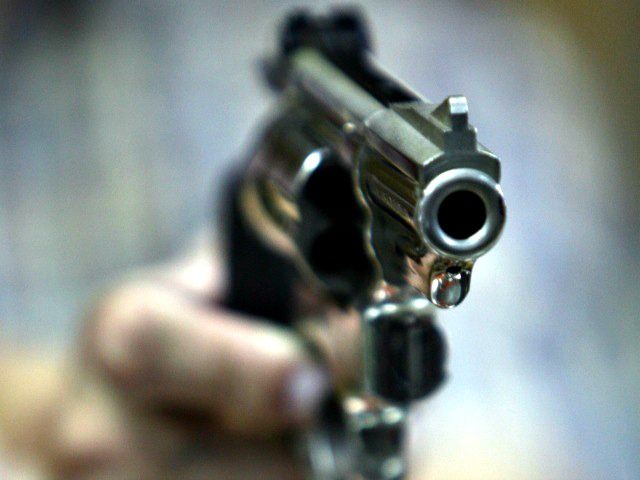The banning of private gun ownership in Venezuela has made firearms such a valuable commodity that 57% of police killed in the nation’s capital this year were targeted for their weapons, according to Venezuela’s largest newspaper.
El Universal reports that 57% of police killed in Gran Caracas–the greater Caracas metro area–were robbed for their guns, according to official national security statistics “obtained extra-officially.” These include both common police and the members of the Bolivarian National Armed Forces, which operate on a federal level. Of the 47 police killings on the record in 2015, 27 occurred as part of a gun robbery.
Late Venezuelan dictator Hugo Chávez banned private gun ownership in 2012, citing the escalating murder rates that have continued to climb under current President Nicolás Maduro. Both commercialization and importing of guns was banned, though firearms of all shapes and sizes are believed to be readily accessible in Caracas’ worst neighborhoods still.
GunPolicy.org, a University of Sydney project that tracks gun possession internationally, claims that there are 3,250,000 privately owned guns in Venezuela today, despite the ban. Of those, between half and 1.5 million are registered–meaning they are owned by law enforcement officials, the only Venezuelan citizens allowed to possess such weapons. The other weapons are not registered and difficult to track.
As a result, criminals have increased efforts to snatch up any and every type of firearm that comes their way. A report from WLRN, a South Florida news outlet, notes this month that those tracking weapons in Venezuela have found that many are not small self-defense weapons, but “heavy artillery” and “weapons of war” that find their way to the Latin American black market. This creates a significantly less safe atmosphere in the country, as criminals arm themselves at disproportionately high rates.
The police death toll for the first 100 days of 2015 nationally is currently at 97, according to Fox News Latino, yet Maduro has not mentioned gun violence on television since November 25, 2014. (It is worth noting that Maduro, who has his own television and radio program, was on Venezuelan state TV 69.5% of the days of his presidential tenure so far.) Maduro’s most prominent attempt to address gun violence occurred last September, when he announced the debut of government “disarmament centers” in which civilians could return their illegal weapons with impunity.
Perhaps this is due to growing violence against police, which rarely receives attention without its counterpart, police violence against civilians. Maduro legalized the use of lethal force against peaceful protesters in January as a “proportional” response when police feel endangered. Less than one month later, a police officer shot 14-year-old Kluiverth Roa to death on his way back from school; Roa was not protesting, but had to walk through a protest to get home. Venezuelan authorities downplayed the incident and returned to their usual rhetoric regarding protesters. In March, Venezuelan Ambassador to the Organization of American States (OAS) Roy Chaderton joked on a Venezuelan state TV program that bullets cross through the brains of anti-socialists faster than through Chavistas’ brains because their heads are “empty.”

COMMENTS
Please let us know if you're having issues with commenting.